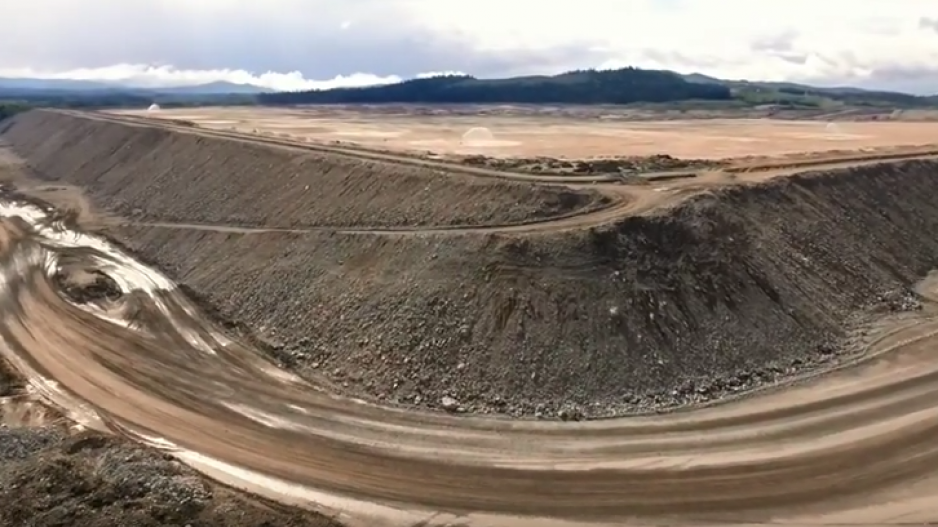Nearly two years after the Mount Polley copper-gold mine was shut down after a massive tailings pond breach, Imperial Metals (TSX:III) has been given the green light to go back into full operation.
The mine’s tailings pond collapsed on August 4, 2014, flooding local waters with a large volume of water and slurry from its tailings pond.
The company was given a permit to restart the mine on a limited basis one year ago, but was restricted by the fact it was not allowed to store mine waste in its tailings pond, which was being rebuilt. The tailings were to be stored in a mined-out pit.
A new permit announced June 23 allows the mine to fully restart to start storing tailings in the rebuilt pond.
But even as Imperial Metals ramps back up at Mount Polley, it has been reducing its workforce at its Huckleberry open-pit copper mine near Houston, B.C.
Citing low copper prices and higher operating costs, the company announced earlier this year it would wind down operations at the mine by August. Imperial owns 50% of the Huckleberry mine. It also owns the Red Chris mine, which went into operation at the beginning of 2015.
The B.C. government responded to the Mount Polley tailings pond breach by striking an independent technical panel, which concluded that the cause of the breach was that the facility was built on an unstable foundation of glacial till.
The panel made a number of recommendations for improving safety, including the creation of independent tailings pond management committees.
“We’ve done all the things that the independent engineering panel, the experts, thought that should be done before reopening,” Energy and Mines Minister, Bill Bennett – who recently announced he will not be seeking re-election – said in a teleconference.
Additional drilling was done at the dam to check the underlying geology of the dam area, and new buttresses and beaches were required to be built to shore up the rebuilt dam.
Bennett said his ministry will also improve communication between his ministry and the Ministry of Environment, as per the recommendations of a damning report by B.C.’s auditor general, who found there were inadequate inspections of tailings ponds and a general “culture” of non-enforcement of existing regulations.




